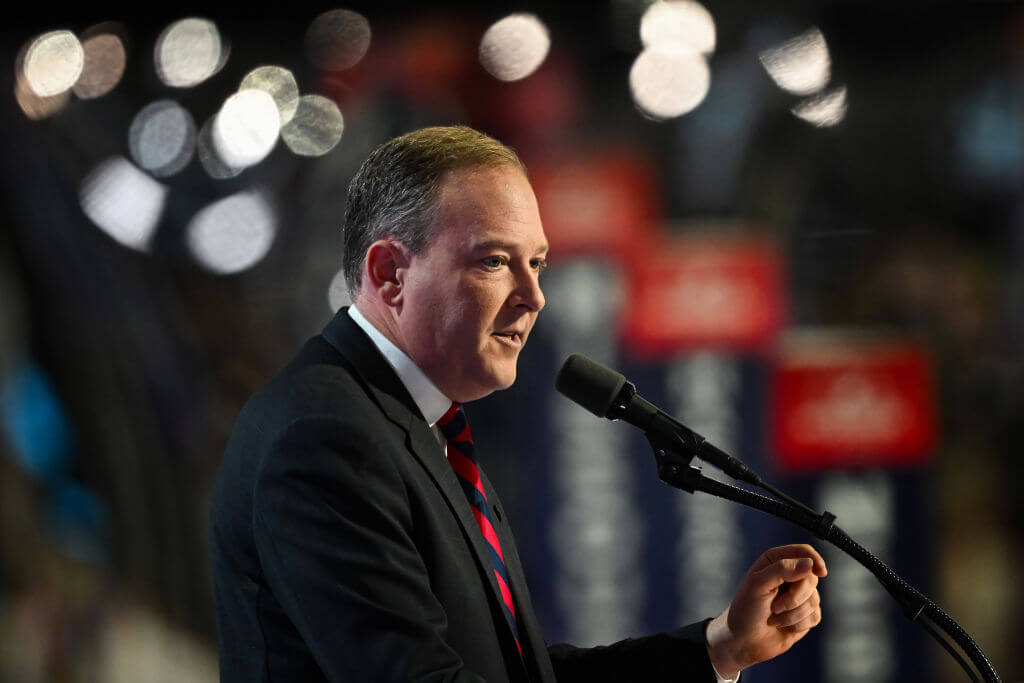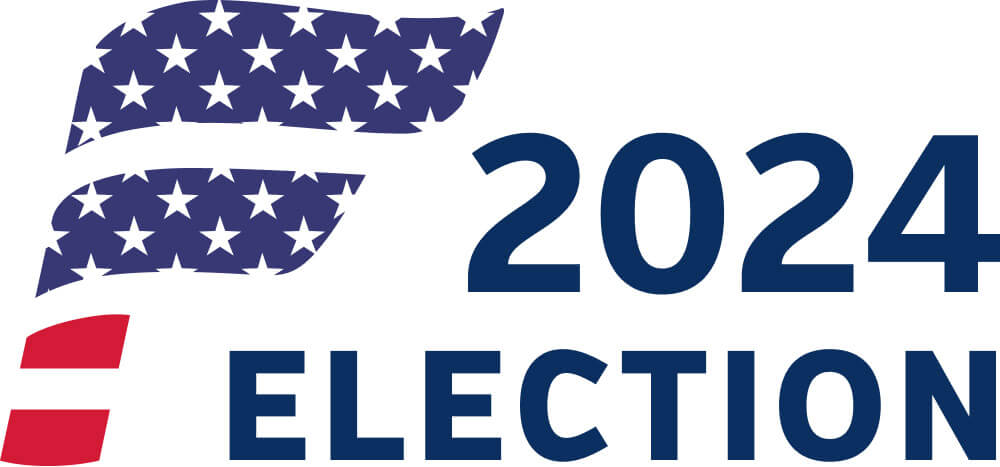Lee Zeldin tries to explain Trump’s remark blaming Jews if he loses
Zeldin said Trump sees a disconnect between his record on Israel and Jewish Americans’ less-than-robust support for him

Former Rep. Lee Zeldin at the Republican National Convention on July 17, 2024. Photo by Leon Neal/Getty Images
Asked about former President Donald Trump’s recent remarks in which he blamed Jews in large part should he lose the election, one of his most trusted Jewish campaign surrogates expressed no disapproval.
 Instead, former Rep. Lee Zeldin, who came within five percentage points of winning the New York governor’s race in 2022, explained to a mostly Jewish audience Monday that Trump’s comments do not reflect “a dislike of Jews.”
Instead, former Rep. Lee Zeldin, who came within five percentage points of winning the New York governor’s race in 2022, explained to a mostly Jewish audience Monday that Trump’s comments do not reflect “a dislike of Jews.”
Rather, Zeldin said at Temple Emanu-El’’s Streicker Center in Manhattan, Trump was trying to express his belief that he should be doing better with Jewish voters given the accomplishments of his presidency and promises for a second term.
“In his mind, he believes that what he’s done, plus what he would do, is something that should be earning him more votes than he’s ever gotten in the past,” Zeldin said during an interview with Brad Rose.
Rose, a prominent Jewish Republican who, who, like Zeldin, is a board member of the Republican Jewish Coalition, said Trump’s remarks bothered him.
“It sort of panders to a very bad element and raises questions about whether or not he harbors any antisemitic beliefs,” Rose said, adding that the remarks could also backfire. “People can take it and run with it in a direction that is not really good for him.”
A transaction relationship with American Jews
Trump has often spoken about his support for Israel in transactional terms, suggesting Jewish Americans owe him loyalty in return for relocating the American embassy from Tel Aviv to Jerusalem, recognizing Israel’s control over the Golan Heights, withdrawing from the Iran nuclear deal and brokering the Abraham Accords.
But American Jews, reliably Democratic voters, have long ranked many other issues more highly than Israel when asked what’s most important to them.
It wasn’t until Sept. 22 remarks that Trump said,in back-to-back speeches to a mostly Jewish audience, that Jews “would have a lot to do with a loss” if Vice President Kamala Harris wins on Nov. 8.
American Jewish groups condemned the comments as “outrageous and dangerous.” Others denounced them as antisemitic.
‘A target on the Jewish people’
Zeldin who garnered significant Jewish support in his gubernatorial run, said that said that even if he — a Jewish candidate — ran for president with Trump’s record, “I don’t believe that I can get past 45% of the [Jewish] vote.”
Zeldin, now chair of the Leadership America Needs PAC, a pro-GOP fundraising organization, has earned Trump’s trust in past years. Trump called him “a big part of our campaign” at a recent rally in Uniondale, New York, adding, “I want to bring him to Washington with us.”
During the hour-long conversation on Monday, Zeldin encouraged Trump “to go out there and earn” the Jewish vote by articulating his policies on Israel, antisemitism and domestic issues. “Campaign as hard as you can and earn the support of many of them.”
The Streicker Center held a similar conversation last week with Democratic surrogates for Harris — Gov. Kathy Hochul and Halie Soifer, chief executive of the Jewish Democratic Council of America and a former Kamala Harris aide.
“It is fundamentally dangerous to put a target on the Jewish people and to blame them for anything,” Hochul said at the time. “I really find that frightening because people act on those words.”























